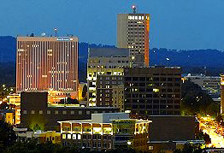Drug Addiction in South Carolina
 South Carolina's coastal regions and inland mountains make it popular for year-round families as well as tourists. While the state carries the nation-wide burden of drug epidemics, like most Southern states it does not face problems as severe as many other areas of the country.
South Carolina's coastal regions and inland mountains make it popular for year-round families as well as tourists. While the state carries the nation-wide burden of drug epidemics, like most Southern states it does not face problems as severe as many other areas of the country.
The Deep South Meets Chronic Drug Addiction
There is little heroin and crack cocaine abuse in urban areas in South Carolina, and even meth and prescription drug abuse rates are below average. With the majority of the population spread between seven urban centers, and a significant portion of the population living in outlying mountainous and swamp areas, drug abuse in South Carolina is spread out and tough to identify and eliminate.One of the reasons is the availability of drugs. Drug use can often be broken down into two groups: the kind that is supplied by a major drug cartel, and the kind that aren't. Along the coast and in cities such as Colombia, Mexican drug cartels operate effectively and profitably peddling heroin, cocaine, marjuana, and so on. But despite being one of the world's largest and most dangerous criminal enterprises, drug traffickers do not supply the entire state with drugs. In far-away and isolated areas, it is not profitable to distribute. Therefore, cities and towns found in the West part of South Carolina often abuse the second kind of drug. These are drugs that can legally obtained, or their ingredients can be legally obtained almost anywhere and can be made without relying on professional drug dealers or chemists. Alcohol, methamphetamine, and prescription drugs are the most well known and abused of these drugs. Part of meth's popularity is that someone can get all the equipment to homebrew meth relatively affordably, buy or steal the necessary ingredients, and create their own supply of addictive crystal methamphetamine and make a tidy profit off of it. Alcohol and prescription drugs, which also happen to be two of the most addictive and dangerous drugs in the world, are legal and available nationwide. Alcoholism is the most popularly abuse drug despite the thousands of deaths and the suffering it creates for millions of people in America.
Prescription drugs are now the leading cause of accidental death in America. Prescription opiates such as oxycontin and vicodin are as addictive as heroin and far more available and accessible. The most commonly prescribed psychiatric drug in America is also one of the most dangerous: Xanax addicts and kills people every day, especially people who take it recreationally and mix it with alcohol.
What is most problematic both in South Carolina and nationwide is the perception on what needs to be done to end drug addiction. Decades of law enforcement policies certainly have not improved the situation noticeably, and millions of addicts have tried to quit drugs by themselves and fail. What is missing from many of these shattered lives is help with healing psychological and emotional problems, and this is the most valuable service drug rehab centers offer. For a drug and alcohol rehab center, recovery and detoxification are only the first steps. From there, a specially-suited addiction treatment program will expose patients to traditional and alternative therapies that will help heal mental trauma and encourage healthy activity. The intent is that the encouragement and sense of self-worth developed during this time will gird our patients against future temptations and thoughts of relapse that ordinarily would be too powerful to resist. If you or someone you know needs to get sober and become strong enough to resist it in the coming months and years please contact us right away to see what we can do to help.
South Carolina cities with high drug abuse trends: Columbia, Greenville, Charleston, Myrtle Beach, Summerville, Rock Hill, Spartanburg, Anderson, Lexington, Florence, and Sumter
South Carolina counties with statistically high substance abuse: Greenville, Richland, Charleston, Horry, Lexington, Spartanburg, York, Anderson, Berkeley, Beaufort, Dorchester, Aiken, Florence, Pickens, and Sumter
A Center for Addiction Recovery treats the following addiction problems:
- Alcohol Rehab
- Bath Salts Rehab
- Drug Rehab
- Cocaine Rehab
- Heroin Rehab
- Marijuana Rehab
- Meth Rehab
- Prescription Drug Rehab
- Pain Management
- ADD Treatment
- Bipolar Disorder Treatment
- Cutting Addiction Treatment
- Depression Treatment
- Eating Disorders Treatment
- Gambling Addiction Treatment
- Mood Disorders Treatment
- Post-Traumatic Stress Disorder
- Sex Addiction Treatment
- Withdrawal
A Center for Addiction Recovery offers the following addiction treatment programs:
- Intervention
- Detox
- Drug Addiction Treatment
- Alcohol Addiction Treatment
- 12 Step Program
- Dual Diagnosis Treatment
- Drug Rehab for Women
- Residential Addiction Treatment
- Executive Addiction Treatment
- Addiction Treatment Aftercare






